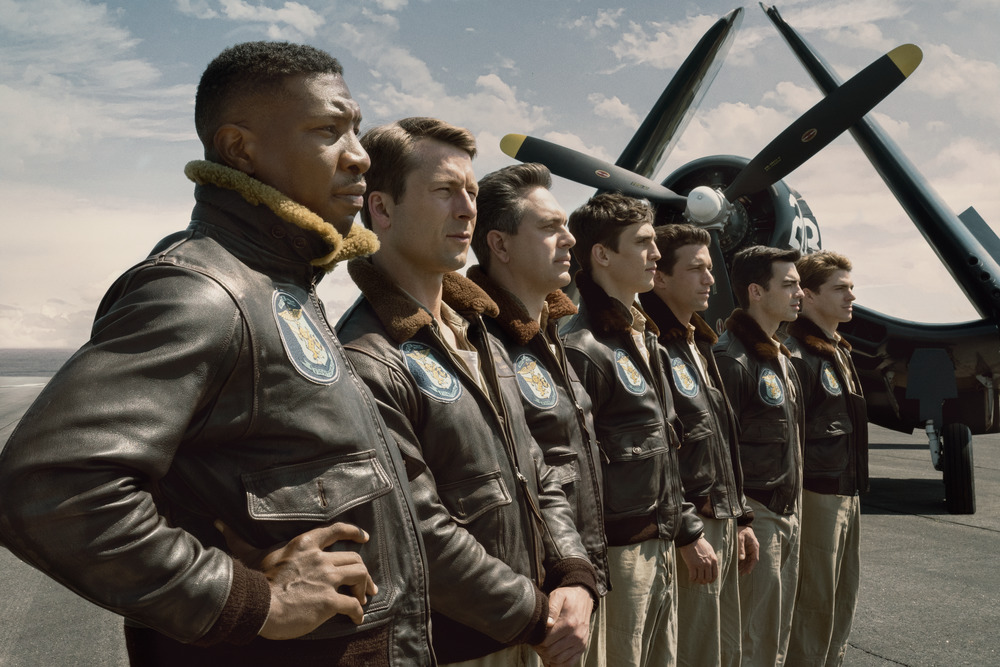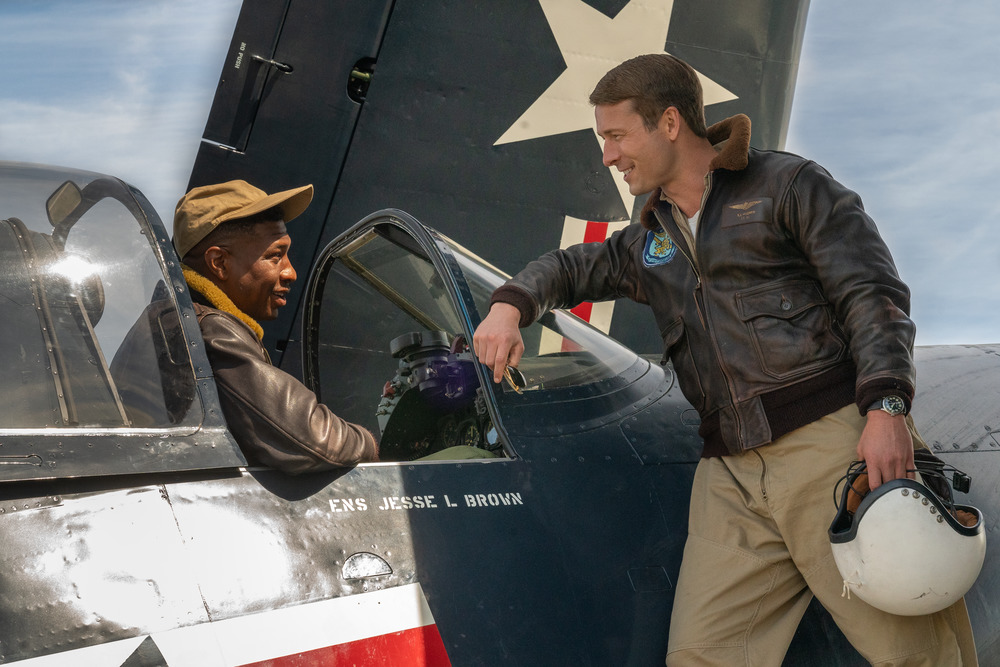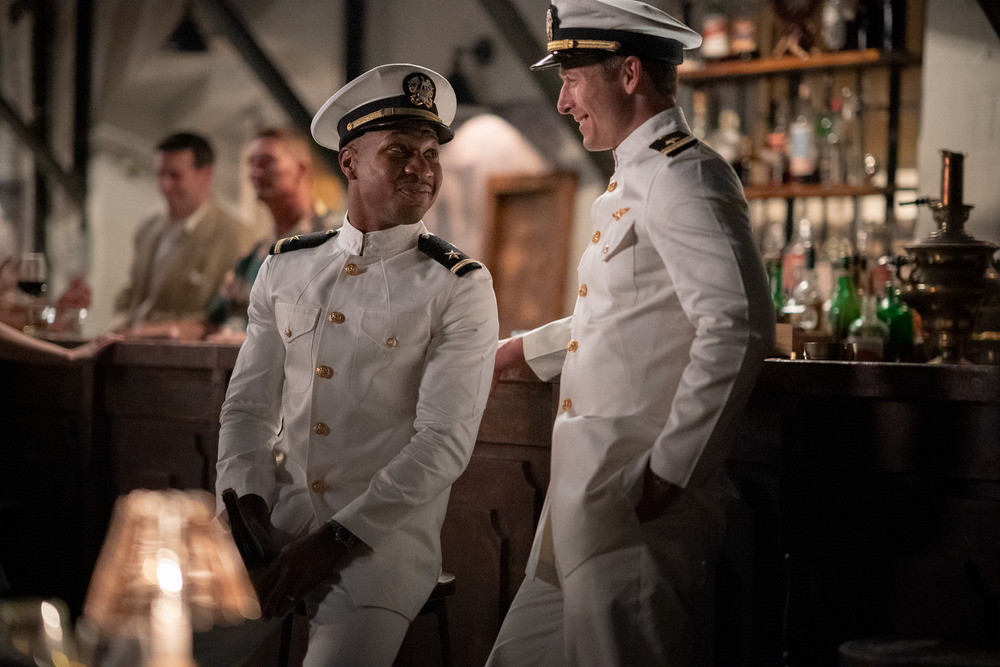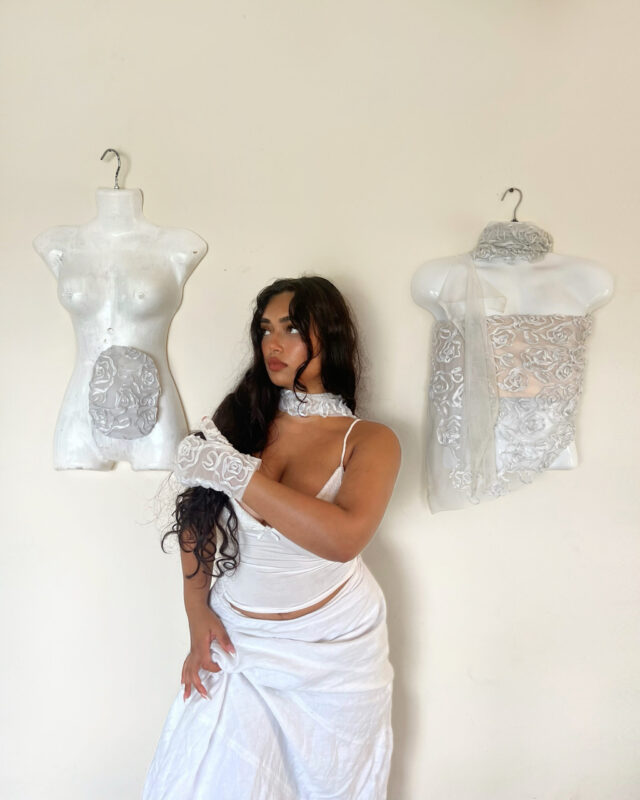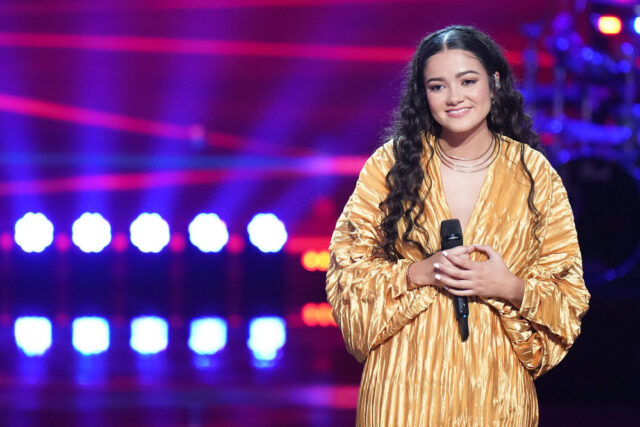INTERVIEW: Devotion Star Christina Jackson Talks New Role, Jonathan Majors, Love Letters, and More
Christina Jackson (Swagger, The Night House, Outsiders) stars opposite Jonathan Majors (Lovecraft Country, The Harder They Fall, Loki) in Sony Pictures’ Devotion.
Based on the best-selling book by Adam Makos by the same name, Devotion tells the story of two elite US Navy fighter pilots who made history in the Korean War, including Majors’ real-life character Jesse Brown, the first Black aviator in Navy history, and his wingman, fighter pilot, and friend, Tom Hudner, played by Glen Powell (Top Gun: Maverick). Christina stars as Daisy, the wife of Jesse Brown, who was not only the history-making pilot’s foundation at home with their daughter, Pam, but also his inspiration while taking to the sky in action for his country.
Directed by JD Dillard and written by Jake Crane and Jonathan A. H. Stewart, the film is produced by Molly Smith, Rachel Smith, and Thad Luckinbill and executive produced by JD Dillard, Glen Powell, Robert Simonds, Adam Fogelson, and John Friedberg. Majors, Powell and Jackson, are joined by Thomas Sadoski and Joe Jonas, who round out the cast.
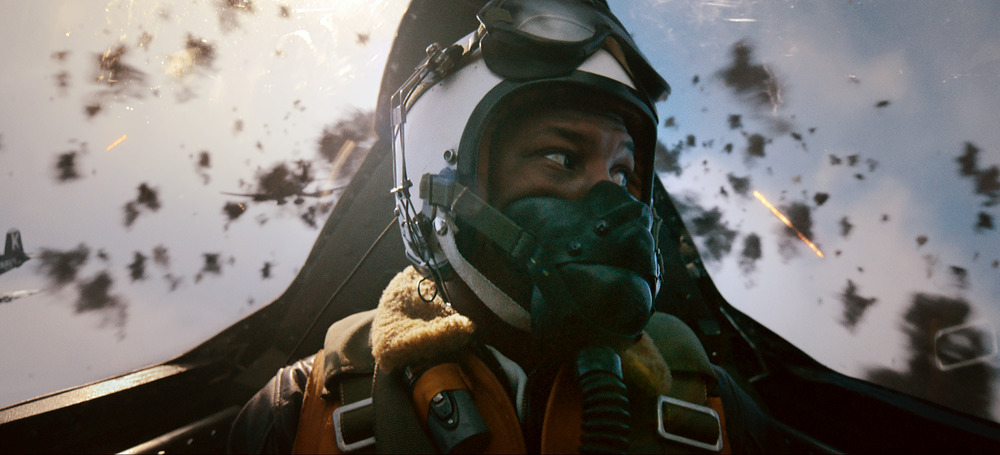
Devotion is not just an action film despite viewers being in for a visual treat as the same aviation coordinator, Kevin LaRosa Jr., who worked on Top Gun: Maverick, also worked on this film. It’s also a good old-fashioned love story layered with resilience from a man who not only made history but of a couple who showcased immense strength through the love and the foundation of their family during racially triggering times in the 1950s. Glitter sat down with Christina to chat about how she prepared for the role, her historical female inspirations, how her costar fell in love with her as Daisy, allyship, family, and the beautiful production and wardrobe for the film, which all brought her character to life.
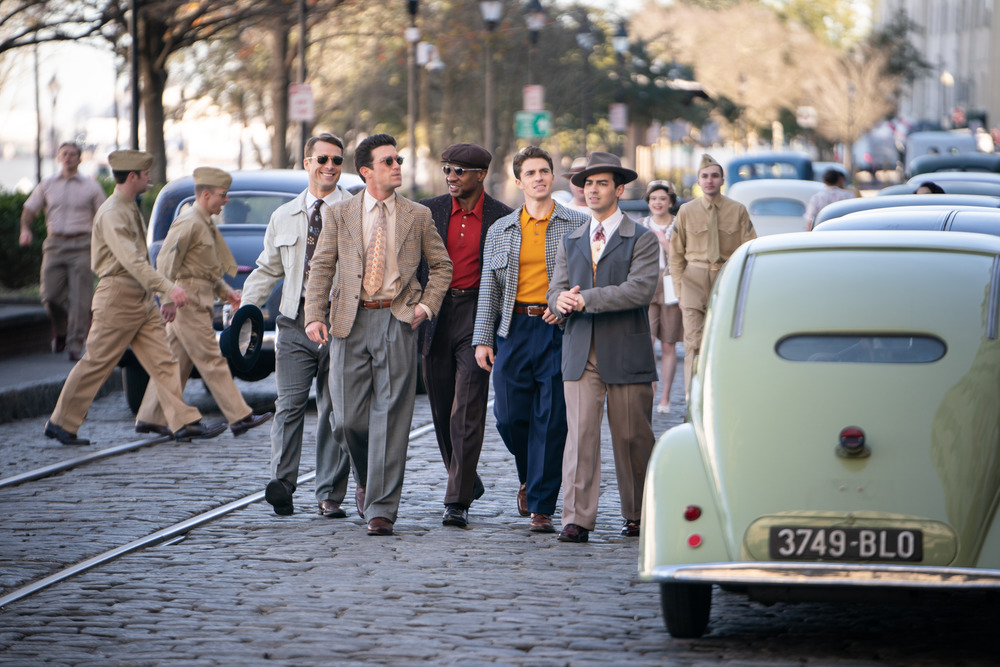
NIKKI: Congratulations on your new film, Devotion. I’ve already told you what a beautiful film this was when we initially met; your performance was amazing. You’re starring as Daisy Brown opposite Jonathan Majors and Glen Powell, so please tell us a little about your character, Daisy, the wife of real-life hero and aviator Jesse Brown.
CHRISTINA: Daisy Pearl Brown is, for Jesse, a fellow native of Hattiesburg, Mississippi, and they start dating. Jesse is training in the Navy at this time, so he sneaks and marries her. You’re not supposed to do that; you’re not supposed to get married during training, but he did. Him training to be the first Black naval aviator, he’s the first one, so he doesn’t have anybody to speak to his experience as he’s going through it as a Black man in the armed forces. So by nature, he turns to Daisy. So in the script, when you first meet her, she is described as his heartbeat, his anthem; Jonathan calls her his sanctuary. Those are all very fitting; she is the first Black naval aviator’s wife and the one who carried on his legacy.
NIKKI: Throughout the film is this very beautiful love story and it’s so great to see that on screen. So you’ve touched on it. But, tell us more about the importance of that love as it pertains directly to Jesse’s personal and professional life.
CHRISTINA: Oh, it’s everything. Daisy doesn’t necessarily know what it means to have that burning desire to fly in the sky, but she knows that she loves this man. She knows he’s a good man. She knows that he has a purpose far beyond himself. And so, one of the things in the film that JD, Jonathan, and I wanted to ensure is that we’re in the same movie as everything else is happening. You can’t have the aerial stuff be great, but then the emotionality at home is not what it needs to be. For Jesse, it’s very important because she’s the woman that he’s choosing to spend his life with, and I think that the way that she holds him up at home, the way she inspires him at home, the way she listens to his thoughts and his desires at home, that’s what allows him to go be up in the sky. You can say that he wouldn’t be able to be a pilot without that woman’s love. I think that he could be, but I think that the two of them finding each other during that space in time made all the world of a difference for him. The hardest part about that in the film is that you don’t watch them fall in love. You don’t see the googly eyes and all of that; you see them already in it. They are already married. They already have a baby. They are already figuring it out. So that was the challenge. What does this already established mature love look like on these two people?
NIKKI: You mentioned at a recent screening and Q&A that Jonathan loved Christina as Daisy during filming, and I thought that was so profound. How did that interaction allow you to breathe even more life into Daisy?
CHRISTINA: I mean, there’s not a whole lot of these two people together in the film, and so that’s also our other challenge is that we need to be able, in these amount of scenes, to show people that these two people love each other this much. How do we do that? Then also, it being a period piece, we’re so used to just seeing Black women in certain lights during the 1950s and 1960s, in my other projects, the 1970s. With the amount of time we had, we read the books, read the letters, and talked to each other, but Jonathan was the, “Let’s go out. Let’s go for a walk. Let’s go have ice cream. Let’s go, just sit and talk” and listen to me. When you read the book, you find out how much Jesse did by way of finding homes for them, by way of finding places for them to stay. He did so much more than just train and be in the Navy. So, it was a matter of the conversations. Jonathan is a very intentional, caring, beautiful, spiritual, and praying man, so all those things weren’t that far off from Jesse. And again, it was you have all the talks, but then on the day you get in there in the scenes, you see what each other is bringing. It is true, I very much felt like Jonathan as Jesse loved Christina as Daisy; there are just these moments where we have these looks in these moments where he is asking me to trust him in what he’s about to go do. And she, in a way, has to because that’s what’s going to get both of them through it—a very beautiful experience to have had.
NIKKI: What important women in history did you channel to portray Daisy’s character?
CHRISTINA: Daisy not really understanding Jesse’s need to be up in the sky, but it being his purpose, that can cause conflict, and we’ve seen it time and time again. So I’ve thought about women who would know what that’s like other than other service members, like women that I know, and you get to the Myrlie Evers with Medgar. You get to the Coretta Scott’s with Martin Luther King. You get to the Betty Shabazz’s, and throughout history, I’ve always read more about those women than I did the men that we know because those are the ones who were home, also by their sides, but they were the ones that were at home when the men were on on the road, and they were the ones who had the children. They are the ones who were left with the children. It becomes this conversation of how you reckon with letting someone follow their purpose, knowing that it could take them away from you. I still don’t know, even after playing Daisy. I just know that this man had to fulfill whatever his destiny was, whatever that sacrifice is, and so in listening to these three women, it gave me a little bit of guidance on what it was to stay up and worry. To know within all your heart that what he is doing is for the betterment of everyone. Jesse doing all of this to become the first Black naval aviator like this is important, but I do want you to come home, and I do want you to watch Pam grow up. You take that guidance, take those conversations, weave it into the thread and get the tapestry. I’m a better person for it.
NIKKI: Definitely. Throughout the film, Jesse writes a series of love letters to Daisy and Pam. Please tell us a little bit about those letters and their significance. In that last letter he wrote, you stated in the past that it was written in Jonathan’s handwriting.
CHRISTINA: So Jesse and Daisy spent a lot of time apart, and there’s one thing to have phone calls, but it’s another thing to hold somebody’s words in your hands. Even the fact that Jesse made the promise to her that he would write her as often as he did was very beautiful, and it doesn’t make it into the film, but there was a time where the Marines had got a hold of Jesse’s letter and read it out loud in front of everyone. The letters are important specifically because they give you a timeline, let you sit down and think about what it is that you’re going to say, and let you be intentional. Every word that ends up on that page is heartfelt and meant. Jesse’s last letter is my first real introduction to him in his own words. It is four pages of him not trying to convince her that’s not the right word, but he wants her to know, without any doubt, that he loved her. More than any man has ever loved a woman. In reading that, that’s why I took Devotion. I took the role because I read Jesse’s letter to Daisy and I saw how much he loved her, and also he knew, and he took that time to write it to her. Then in the film, there is another letter that Jesse writes to her for a birthday, and Jonathan, first day on set preproduction, hands it to the props team. I was presented with the letter that props had written and the one that Jonathan had written, and I was like, well, obviously, give me that one. To know that he sat and re-wrote Jesse’s words to me and that that was the first thing that he wanted to drop off. I was like, “Bro is on a different level.” Like he is doing the work far beyond, and there is something that Jonathan and I know about the letter they would have to show you. Still, because we’re playing a game, the letter has to be written a certain way not to reveal what the surprise is and the way that it was written, and props, no offense to them, but was going to give it away. So Jonathan had even written it in a way that I had to physically turn the pages to find out what the gift was. And it’s just like, “My man, alright, alright, that’s a good man right there.”
NIKKI: What do you hope will resonate with viewers seeing this on screen?
CHRISTINA: I hope audiences see how much love and work went into telling this story. In a time and in a realm where there’s so much material, there’s so much stuff that people can see; there are so many choices. I hate to say that we have a film that’s for everybody because I don’t think that it is. I think that we have a lot of those themes of love, sacrifice, brotherhood, and family, and all of those things are very true. But we’re going into over 70 years and have not known this man’s name. We would not know the sacrifice that Tom made had it not been for Jesse. So I want the love and all of that to resonate, but I just want people to know his name, what he did, how he did it, the time he did it, and the adversity he faced. Tom went on to live a very long and fruitful life, but he spent it speaking the praises of Jesse and trying to get him home. And so there’s that aspect of it where, I think, we put a very, very beautiful movie together. Even at the premiere, again, I was sitting there watching it, like the way that the sound is you feel the airplane moving from your shoulder, you’ll get all of that. But in these scenes, even up to Jonathan’s last words in the film, I want you to know this man and to know all of these people that were in his life and leave the theater knowing a little bit more, wanting to hug somebody a little bit tighter, a little bit more appreciative.
NIKKI: Glen Powell plays Tom Hudner, and through Daisy just being herself, she’s teaching him about allyship, where he’s questioning saving Jesse versus looking out for Jesse. So how does Daisy do this, and what do you feel Tom learns from Daisy?
CHRISTINA: By the time you get to these two sitting at the table in the house, there have been a series of things that had to happen in order for him to get there. One thing that Jonathan and I and JD, our director, had conversations about is what did not exist in the Brown house. That was the racism and the heaviness of the day. There’s all of that. By the time Tom comes in and meets Daisy and Pam, Jesse’s made a decision. Daisy and Jesse did not have enough time to talk about it, but they are that in tune with each other where it’s like, okay, so he’s here now, all right, where we can have the conversation. Daisy is the sweeter of the two, but she’s just as serious about her husband and his life as Jesse is about her and Pam. And so, her opening up to Tom the way that she does, it’s not an act of desperation, but it’s “I need you to know how important I am to him up there, and now you need to fulfill the other part of that in the ways that I can’t understand.” It’s kind of this not releasing the reins, but it’s letting someone in on how this thing works here and now what your responsibility is. I think in the sense of learning allyship from her, Daisy’s approach was never going to be the way Jesse’s is because their relationship is different. But in her understanding that up in the sky, it doesn’t matter who’s Black, who’s white, you are both there fighting far beyond yourselves; you’re fighting for me, you’re fighting for Pam, you’re fighting for everybody. It needs to happen down on the ground too.
That’s the thing about how Glenn and Tom are very earnest, and like they want to be friends, and they want to support, but they don’t quite know how and Jesse’s so frustrated and fed up and, and we’re like, “Just go do it. Like, just go do it.” It’s like, “But I don’t know how.” Glenn plays it so beautifully, in the sense of, “I don’t know what I’ll do, but I’ll go do my best.” But then also, in the end, that’s where that feeling comes from, that he actually failed, and it’s like, “You didn’t. You didn’t fail. You did what I asked you to do. Thank you so much. Now let’s move past this.”
Even towards the end of both of their lives, Daisy and Tom kept in touch. They kept talking, and even now, to this day, the two families are still intertwined, and like they still keep up and all of that. So I think that’s more of the legacy of Daisy Brown, what happened after Korea.
NIKKI: I have to ask you about the beautiful production and wardrobe, down to all the details. How did that help to enhance your character?
CHRISTINA: It makes all the difference. I’ve done Boardwalk Empire. I’ve done. Devotion and my next film (Shirley) is going to be about Shirley Chisholm running for President. Specifically with any character, when you see the shoes and the hair, it’s like, okay, it gives you your interpretation or adds to your interpretation. But period clothing is just different. It’s like, “Oh, they walked like this because the jeans were this way, or this is how they needed to be.” And so that’s always kind of the most fun part to me is wardrobe and then set design. It’s like to be able to stand in the Brown household and look at pictures of Black people in Black couples from before the 1950s, to be able to kind of step back in time. That’s always a joy for me. We’ve seen all of the actors, I want to say, in like up-to-date clothing, but it’s like to see Jonathan in like a uniform is, “Ahhhh, (loses her breath) Mpmf! Mmm-Mmm.” (laughing)
NIKKI: Ditto. (laughing)
CHRISTINA: It’s cool. It’s like to put the wigs on and to have the pin curls and the rollers, and, you know, I’m not a size two, and so they had to build my clothes because I wasn’t fitting into a lot of the period clothing and them being able to go back there and like look at the patterns and make me feel comfortable. I mean, all of it was just far beyond anything I could have prayed for.
NIKKI: Well, you looked beautiful. I’m just going to tell you again, all of the outfits; I was absorbing it all. It was so beautiful and lovely to see the care put into being representative of someone who isn’t a size two. So I’m in that club also, so it’s really beautiful to see. So all those details resonated. Christina, thank you so much. We’ll wrap here, but it was a pleasure meeting you, and thanks for taking time out.
CHRISTINA: Truly, truly, truly a pleasure to do this. I wish you all the best. Thank you.
Devotion hits theaters on Nov 23 and debuts on Paramount+ on January 8, 2023.
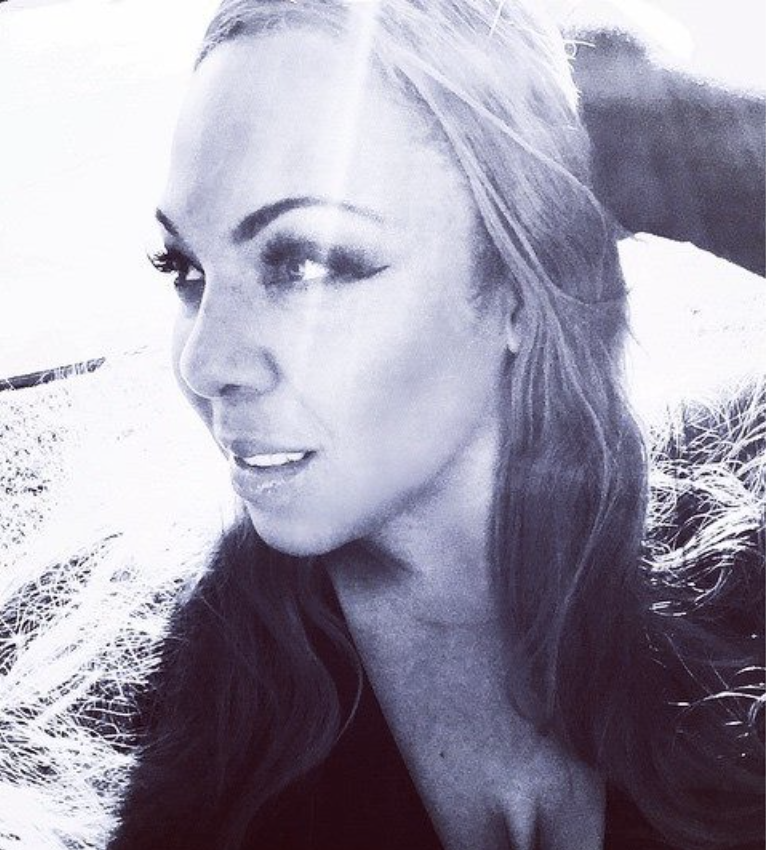
Award-Winning Publisher


